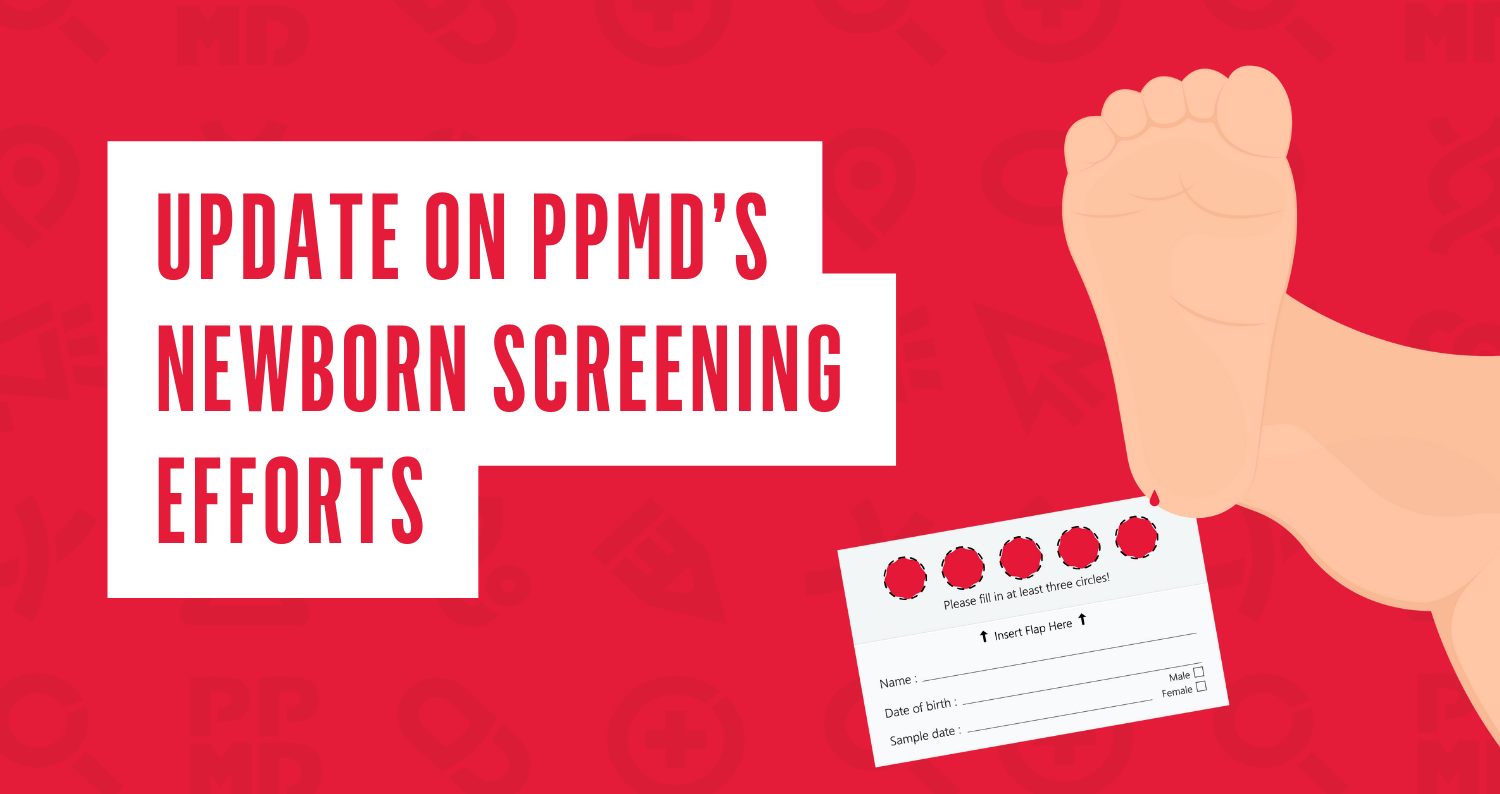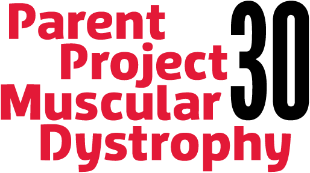
With a robust therapeutic pipeline, regulatory infrastructure, and clinical care network and guidelines in place, PPMD has been building the infrastructure and preparing for the implementation of newborn screening for Duchenne for almost a decade. Our goal with these collective efforts is to enable early diagnosis, early intervention, and most importantly, the best possible outcomes for all babies born with Duchenne/Becker.
As part of that process, PPMD submitted a nomination package to the Recommended Uniform Screening Panel (RUSP) in June 2022 with co-sponsor Muscular Dystrophy Association (MDA), requesting that Duchenne be a condition recommended for nationwide newborn screening.
The nomination is reviewed by the Advisory Committee on Heritable Disorders in Newborns and Children (ACHDNC) to analyze the evidence presented about the benefit of NBS for Duchenne. Considerations include the availability of an effective test to identify newborns, the need for treating young children with Duchenne, and the ability of state laboratories to do the screening.
The ACHDNC review is a multi-step process, including two committee votes along the way. The first vote, which happens after the Nomination and Prioritization review, occurred today.
During this vote, the Committee chose not to push Duchenne forward for additional review at this time. The Committee discussed Duchenne at length and felt that additional evidence is needed about how much benefit babies would receive from early treatment and how to make the newborn screen as accurate as possible.
What does this vote mean for NBS in Duchenne?
This decision is not unexpected. Because most children with Duchenne are not diagnosed until age 4 or 5, there have been very few studies looking at how children who are treated during the first or second year of life are doing. Duchenne progression is very slow in the early years, so it may be difficult to identify benefits of early treatment until after many years have passed.
Collecting Additional Evidence
Our community’s work to compile additional evidence about the benefit babies would receive from early treatment remains consistent and ongoing:
- PPMD is actively trying to gather more data on early diagnosed and treated children, both through The Duchenne Registry and through grants in cooperation with Certified Duchenne Care Centers. If you are not already a member of the Registry, we encourage you to join!
- PPMD recently hosted a one-day meeting focused on understanding care in children under age 3 and is working with expert clinicians to develop best care guidelines for this group.
- Clinical trials that are ongoing in young children with Duchenne and approvals of therapies that are under consideration by the FDA could also provide important evidence that would push Duchenne newborn screening forward.
Once additional evidence is gathered, PPMD will re-submit the Duchenne package, as encouraged by the ACHDNC during today’s review.
Individual State Processes
Having Duchenne on the RUSP remains an important goal. Being on the RUSP shows that there is clear evidence of benefit to the babies and their families for newborn screening of that condition, and some states automatically start newborn screening for conditions once they are added to the RUSP.
However, most states have additional processes to add a new condition like Duchenne to their newborn screening, which may include legislation or review by a state advisory board. PPMD is working with states that may want to consider adding Duchenne to their newborn screening in the near future.
PPMD Remains Committed to Newborn Screening
As always, PPMD will continue to support all families affected by Duchenne. Because Duchenne is progressive over time, treating early will likely provide the optimum benefits. PPMD remains committed to newborn screening and equitable early diagnosis for all children with Duchenne.



 by: Parent Project Muscular Dystrophy
by: Parent Project Muscular Dystrophy

